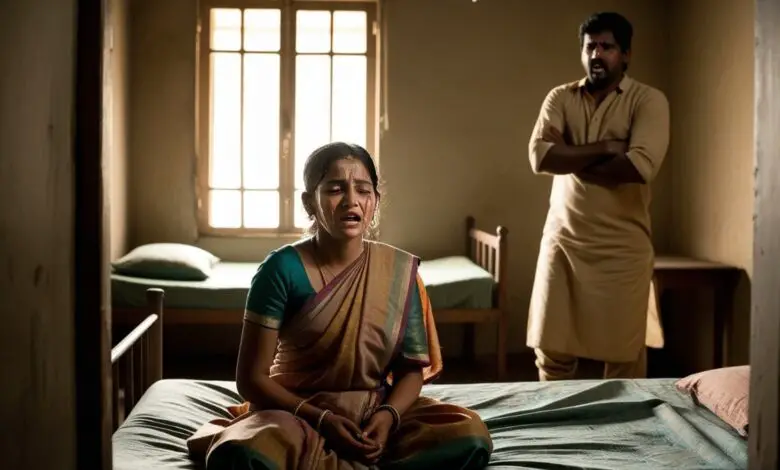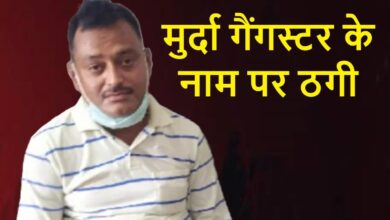18 deaths every day due to dowry… yet why are questions raised again and again on the laws related to it? – supreme court dowry act verdict what is dowry laws in india women law pryd

The Supreme Court on Tuesday cautioned courts against prosecuting husbands and their relatives in dowry harassment cases. The Supreme Court expressed concern over being implicated in false cases in domestic disputes. The court said that even if he is acquitted from such false cases, the wounds he gets can never be healed.
The bench of Justice CT Ravikumar and Justice Rajesh Bindal said that such allegations are common in marital disputes, due to which even distant relationships often have to suffer.
The court said, ‘All the relatives have to suffer due to such cases. Even if one is acquitted in the case, the mark of insult cannot be erased. The Supreme Court suggested that the definition of ‘relative’ in Section 498A of the IPC needs to be made more precise.
Section 498A of IPC protects women from cruelty of husband and his relatives. This provision has been made in sections 85 and 86 of the Indian Judicial Code (BNS).
Questions have already been raised
What the Supreme Court has just said has actually been said in a case related to allegations of harassment against a distant relative of the husband. A woman had accused her husband’s cousin’s wife of dowry harassment. When investigation was done, no evidence of this was found. After this the High Court stopped the proceedings.
On Tuesday, the Supreme Court said that facing trial only on the basis of allegations is nothing but an abuse of the court process.
This is not the first time that the Supreme Court has raised such questions regarding 498A. In September this year, the Supreme Court had described the Domestic Violence Act and 498A as one of the most ‘misused’ laws.
In a case in 2014, the Supreme Court had said that there should not be immediate arrest in such cases. To stop harassment of innocent persons, a thorough investigation should be done first.
In 2017, the Supreme Court had banned the immediate arrest of husbands and in-laws in cases registered under 498A. The court had also asked to form a family welfare committee to investigate such cases. However, the very next year in 2018, the Supreme Court had made it clear that there is no need for a committee in such cases.
In August this year, the Bombay High Court had expressed concern over the misuse of 498A and said that grandparents and bedridden people were also being implicated. At the same time, in May, the Kerala High Court had said that wives often file such cases against the husband and his family members to take revenge.
Even in 2022, the Supreme Court had issued some instructions regarding this. Then the Supreme Court had said, if cruelty has happened to a woman then she will also have to tell about the people who committed the cruelty. The Supreme Court had said that the victim woman will have to clearly explain what kind of cruelty her husband and his in-laws have done to her, at what time and on which day. Merely saying that he has been subjected to cruelty does not make out a case under section 498A.
What are these laws?
National Crime Records Bureau (NCRB) data shows that every year thousands of women die due to dowry. Every year thousands of cases related to dowry deaths are registered.
According to the NCRB report, 6,450 cases of dowry deaths were registered in 2022. According to this, an average of 18 women die every day due to dowry.
Dowry murder is considered when a woman dies due to injury, burn or abnormal circumstances within 7 years of her marriage and it is found that before her death, the husband or any of his relatives subjected her to any cruelty or Was harassed. Its definition was given in Section 80 of BNS. If found guilty of dowry death, there is a provision of minimum punishment of 7 years, which can be extended up to life imprisonment.
Section 498A, which has been added to Section 85 in the BNS, protects women from cruelty by her husband or his relatives. Cruelty can be both physical and mental. Physical cruelty includes assaulting a woman.
At the same time, mental cruelty includes behavior like torturing, taunting, teasing etc. If any such act is done intentionally which instigates the wife to commit suicide, it is also considered cruelty. Apart from this, demanding any property illegally from the wife or any person related to her is also considered cruel. If found guilty in such a case, the punishment is 3 years imprisonment and fine.
Apart from this, there is also a dowry prohibition law since 1961. This is an expanded form of Section 498A i.e. Section 85. Under this law, a person found guilty can be punished with imprisonment of up to two years and a fine of Rs 10,000.
Why do questions arise?
NCRB data shows that 13,479 cases were registered under the Dowry Prohibition Act in 2020. Statistics also show that every day 18 women die due to dowry. Despite all this, questions are raised on these laws that protect married women from harassment.
Questions have been raised on the misuse of these two laws from lower courts to the Supreme Court. That’s because women often take recourse to these laws to put pressure on their husband or his relatives.
In May this year, in a divorce related case, the Supreme Court had ordered to cancel the 498A case registered against the husband. Actually, the husband had filed a divorce petition from the wife. After this, the wife had filed a case against her husband under several sections including Section 498A. The High Court had refused to cancel the case registered under Section 498A. After this the matter reached the Supreme Court.
Not only this, questions are also raised on these laws because their conviction rate is very low. According to NCRB report, the conviction rate in section 498A is only 18%. Whereas, guilt is proved only in 33% of the cases related to dowry deaths. That is, in the remaining cases the accused are acquitted.




